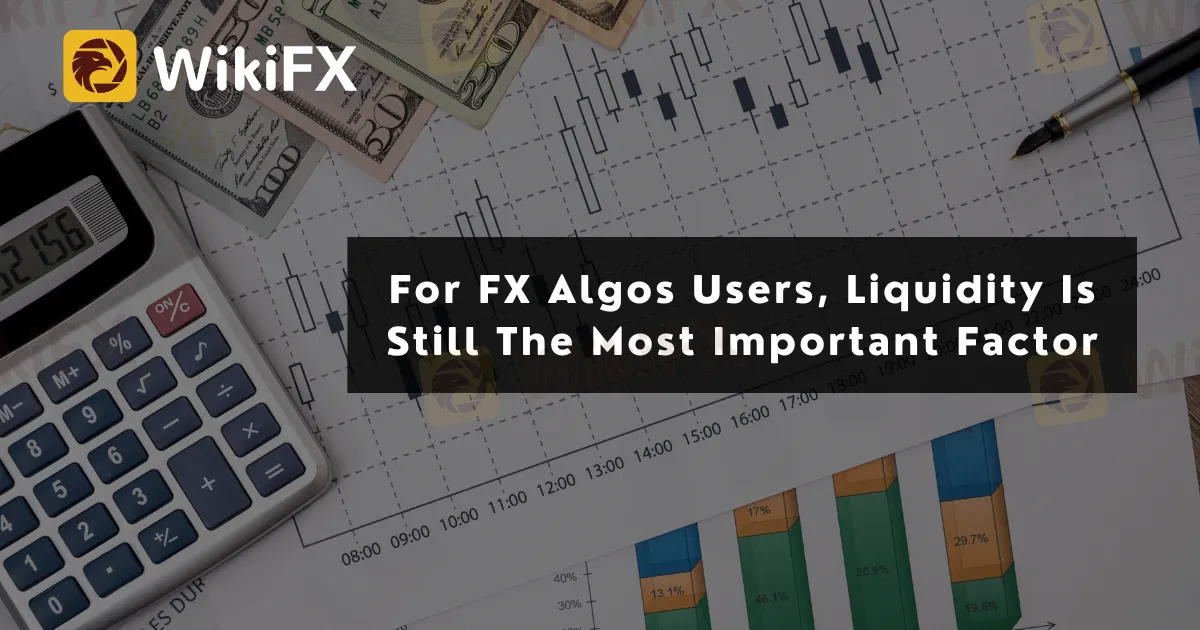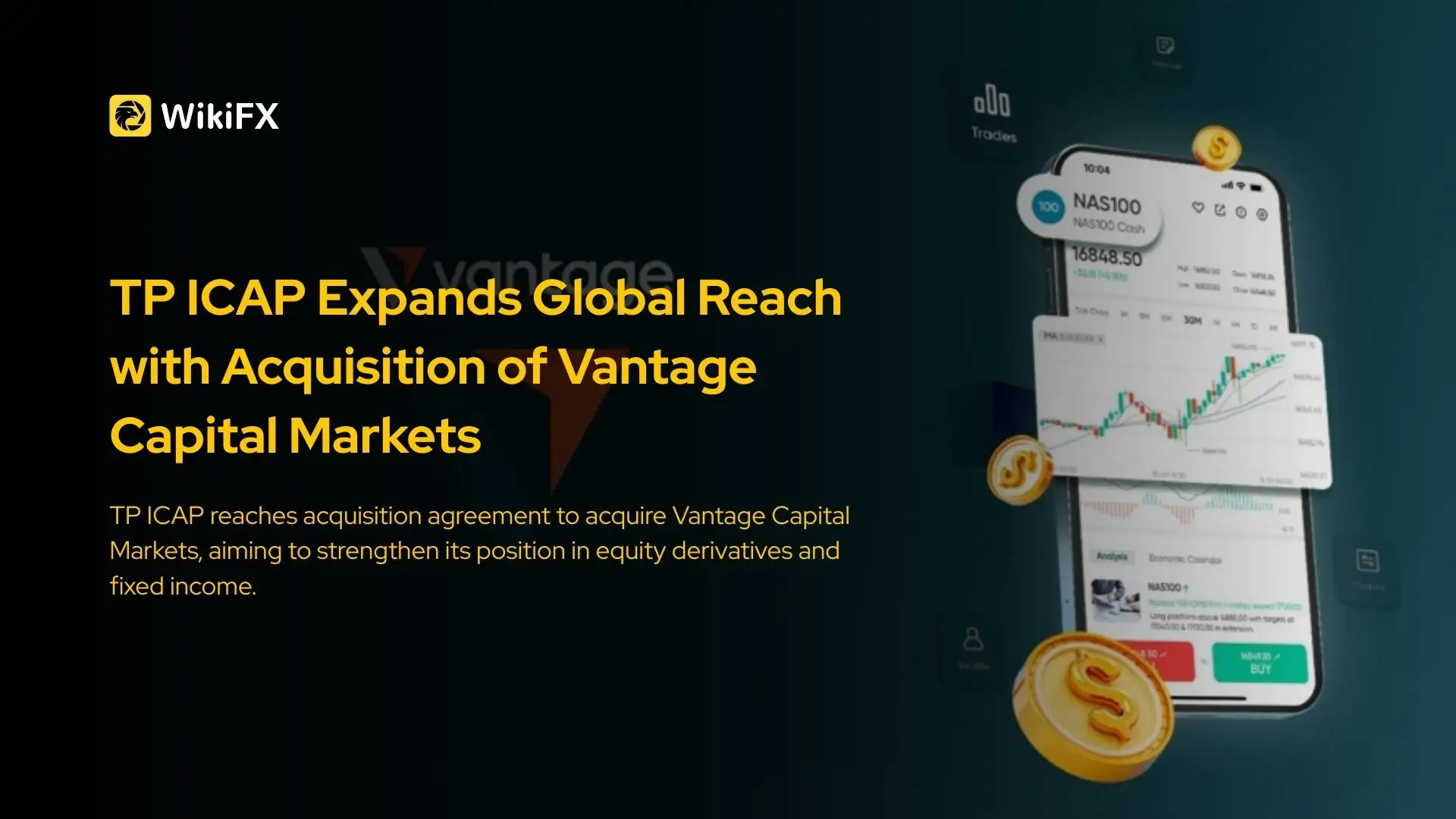TP ICAP Expands Global Reach with Acquisition of Vantage Capital Markets
TP ICAP reaches acquisition agreement to acquire Vantage Capital Markets, aiming to strengthen its position in equity derivatives and fixed income.
简体中文
繁體中文
English
Pусский
日本語
ภาษาไทย
Tiếng Việt
Bahasa Indonesia
Español
हिन्दी
Filippiiniläinen
Français
Deutsch
Português
Türkçe
한국어
العربية
Abstract:Liquidity is one of the most important factors for algorithmic traders, as it directly impacts the efficiency and effectiveness of their trading strategies. Algorithmic trading refers to the use of computer algorithms to automate the process of buying and selling financial instruments.

Liquidity is one of the most important factors for algorithmic traders, as it directly impacts the efficiency and effectiveness of their trading strategies. Algorithmic trading refers to the use of computer algorithms to automate the process of buying and selling financial instruments. By relying on complex mathematical models and data analysis, algorithmic traders aim to make trades more quickly and efficiently than human traders. However, this speed and efficiency only matter if there is enough liquidity in the market to support the trades being made.
Liquidity refers to the ease with which an asset can be bought or sold without affecting its price. In financial markets, liquidity is essential because it allows traders to quickly execute trades without having to wait for a buyer or seller to become available. If there is high liquidity in a market, it means that there are many buyers and sellers available, and the spread between the bid and ask prices is narrow. This makes it easier and quicker to buy or sell an asset at a fair price, which is crucial for algorithmic traders who rely on making many trades in quick succession.
On the other hand, if there is low liquidity in a market, it can take longer to execute a trade, and the spread between the bid and ask prices is wider.
This can increase the cost of trading and reduce the profitability of algorithmic trading strategies. Moreover, low liquidity can result in price slippage, which occurs when the price of an asset changes between the time an algorithmic trader sends an order to the market and the time the order is executed. Price slippage can have a significant impact on the profitability of algorithmic trading strategies, as it increases the cost of trading and reduces the returns of the strategy.
Another aspect of liquidity that is important for algorithmic traders is the stability of liquidity. Algorithmic traders rely on the stability of market conditions to execute their strategies effectively. If market conditions are unstable, there may be sudden changes in the supply and demand for an asset, which can result in large price swings. These price swings can make it difficult for algorithmic traders to execute their strategies effectively, as they may need to wait for the market to settle before they can complete their trades.
- API access: The broker should offer APIs (Application Programming Interfaces) that enable algorithmic traders to integrate their trading algorithms with the broker's trading platform.
- Low latency: Algorithmic traders rely on fast execution speeds and low latency to implement their strategies effectively. Therefore, the broker's trading infrastructure should be able to handle large volumes of trades with minimal delays.
- Trading costs: The cost of trading, including spreads and commissions, can have a significant impact on the profitability of algorithmic trading strategies. So, a broker with competitive trading costs is preferred.
- Regulation: It's important to choose a broker that is regulated by a reputable financial authority, such as the FCA (Financial Conduct Authority) or the ASIC (Australian Securities and Investments Commission).
Based on these criteria, some of the best Forex brokers for algorithmic trading include:





Please note that this list is not exhaustive and the best broker for you may depend on your specific needs and requirements. It's also important to thoroughly research and compare different brokers before making a decision.
Algorithmic traders also need to consider the liquidity of the underlying assets they are trading. For example, some financial instruments, such as futures contracts or illiquid stocks, may have low liquidity, which can make it difficult for algorithmic traders to execute trades efficiently. In such cases, algorithmic traders may need to adjust their strategies or switch to more liquid assets to ensure that they can execute trades quickly and efficiently.
Liquidity is a critical factor for algorithmic traders, as it directly impacts the efficiency and effectiveness of their trading strategies. High liquidity in financial markets allows algorithmic traders to quickly and efficiently execute trades, while low liquidity can increase the cost of trading and reduce the profitability of algorithmic trading strategies. Algorithmic traders need to consider both the level and stability of liquidity when choosing assets to trade and designing their trading strategies.
Install the WikiFX App on your smartphone to stay updated on the latest news.
Download link: https://www.wikifx.com/en/download.html?source=fma3

Disclaimer:
The views in this article only represent the author's personal views, and do not constitute investment advice on this platform. This platform does not guarantee the accuracy, completeness and timeliness of the information in the article, and will not be liable for any loss caused by the use of or reliance on the information in the article.

TP ICAP reaches acquisition agreement to acquire Vantage Capital Markets, aiming to strengthen its position in equity derivatives and fixed income.

A doctor in Pahang lost over RM880,000 in a fake share scheme promising high returns

FIBO Group has grabbed attention from traders for mostly the wrong reasons, as traders have accused the broker of causing financial losses using malicious tactics. Whether it is about withdrawal access, deposit disappearance, trade manipulation, or awful customer support service, the broker is receiving flak from traders on all aspects online. Our team accumulated a list of complaints against the FIBO Group broker. Let’s screen these with us in this FIBO Group review article.

Do you have to pay taxes or margin when seeking fund withdrawals from GMO-Z.com, a Thailand-based forex broker? Do you witness heavy slippage when trading on the broker’s platform? These are some complaints traders have made against the broker. In this GMO-Z.com review article, we have explained these complaints. Take a look!
